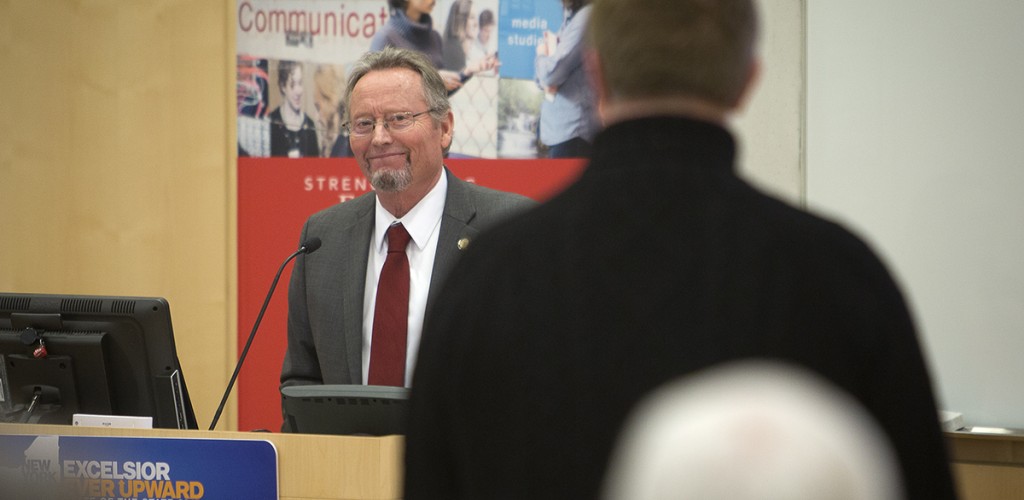State Agriculture Commissioner Richard Ball came to Cornell Jan. 27 with an upbeat message about Gov. Andrew Cuomo’s 2017 budget: It’s good for the middle class, and it’s good for agriculture.
Ball touted the governor’s $152.3 billion budget to a packed Stocking Hall crowd of faculty, researchers, students, Cornell Cooperative Extension personnel and area farmers. The College of Agriculture and Life Sciences hosted Ball as department commissioners spread out across New York in January to deliver detailed presentations about the budget and Cuomo’s State of the State address.
Ball praised the budget as a way to protect the middle class and what he called the governor’s progressive vision for the state. The budget, he said, calls for increases in education and health care spending while reducing taxes for those in the middle class.
And when it comes to agriculture, “it’s a very good budget,” said Ball, who has led the Department of Agriculture and Markets since 2014. He pointed to 25 line items in this year’s budget dedicated to agriculture as spending priorities that will keep New York farms and food among the best in the country.
Julie Suarez, associate dean of governmental and community relations at CALS, said Ball’s experience as a lifelong farmer makes him uniquely qualified as a leading voice for New York agriculture.
“There are few people in the state who are as suited to understand the unique opportunities and pressures of farming in New York state as Richard Ball,” Suarez said of the man who leads the department charged with promoting New York agriculture, protecting food safety and safeguarding agricultural resources.
Ball said a priority this year will be to make it easier for new farmers to connect with information and resources needed to start and sustain a business. His department is building a “one-stop shop” online that will provide beginner farmers with tools and resources. Those beginner farmers – people in their 20s, military veterans and those starting a second career – will have access to a central hub of valuable information, including resources from Cornell’s Small Farms Program, which provides expertise in small-farm business development.
Ball voiced optimism for industrial hemp as an important new crop for New York growers: “I think the growth [of hemp], especially at a time when agriculture needs some options, is astounding.”
He cited the more than 200 industrial uses for hemp as an opportunity to boost the economies of the Southern Tier and the state.
Current state law limits hemp production to 10 projects that must be connected to a research university. Ball said the program has made advances in determining growing conditions for the crop in the state, and he credited specifically Cornell research. The governor plans to lift the cap this year and allow growers to contract directly with the Department of Agriculture and Markets for permits, a move Ball said will fuel more growth in this promising crop.
“I think New York has to be in the front on this,” Ball said.






